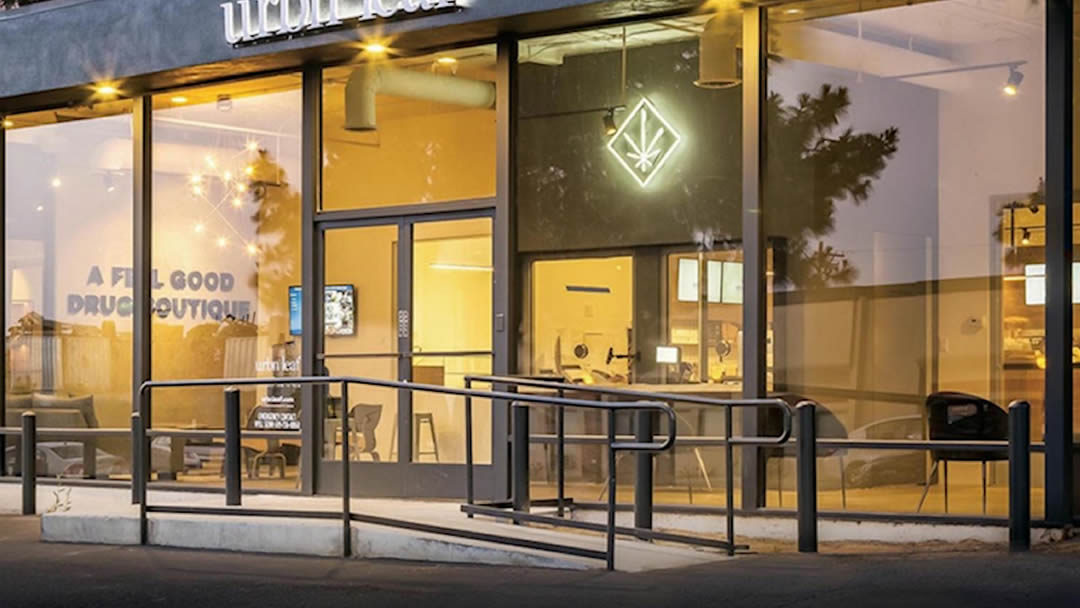
Jul 10, 2019 | Blog, Recreational Marijuana
Michigan is months away from licensing recreational marijuana businesses and opening a new chapter in the state’s cannabis industry.
Originally Posted in MLive Here
Emergency rules were
released this month by state officials to ensure that they meet a December
deadline to launch the industry — or risk losing control.
The 64-page
document includes details for how the recreational marijuana industry will
function, and gives a good indication of what interested entrepreneurs should
expect in terms of state scrutiny.
Here are 14
things to know if you’re interested in getting into the recreational marijuana
market in Michigan:
1. You need a
state license to do business
A state license
is necessary to operate any kind of marijuana business in Michigan.
Licensing fees
start at $4,000 and top out at $40,000, depending on the type of business.
The Marijuana
Regulatory Agency controls the entire state licensing process,
and oversees both the upcoming recreational and existing medical marijuana
markets. It’s housed in the Department of Licensing and Regulatory
Affairs.
Depending on
where your business is located, there may be a local license or permit from the
municipality that is necessary as well.
2. There are
multiple license types — and they can be combined
Each function of
the industry has a different state license type. They can be combined to make
one large vertically integrated company.
Here are the
license types and a short description of the function of each one:
-Retailer: brick and
mortar storefront sales
-Class A Grower: up
to 100 plants
-Class B Grower: up to 500
plants
-Class C Grower: up to
2,000 plants
-Excess
Grower: for
companies with at least two medical marijuana grow licenses and up to five
Class C recreational licenses that want to operate on a large scale in the
recreational market.
-Microbusiness: individuals
can grow up to 150 plants, process the material and sell it all at the same
location
-Processor: extracting
and manufacturing products from marijuana flower like oils, edibles, vape
cartridges and more
-Secure
Transporter: transportation
company that moves products from growers to the lab, to processors and then to
retail stores
-Safety
Compliance Facility: testing lab to make sure products meet
state standards
-Designated
Consumption Establishment: a social use lounge or club
There are also
additional license types for people who want to host festivals.
Marijuana flower
at Yerba Buena farm, located about an outside of Portland, Oregon, Sept. 18,
2018. (Tanya Moutzalias | MLive.com)
3. License
applications can be turned in starting Nov. 1
Officials with
the Marijuana Regulatory Agency will begin accepting license applications Nov.
1.
Once a business
turns their license in, the agency has 90 days to turn it around. If applicants
don’t respond to officials’ questions or requests for more documentation within
five days, their application could be denied.
4. Retail stores
will have to be owned by a medical marijuana company at first
Under state law,
for the first two years of the recreational marijuana program, only business
owners that hold a medical marijuana provisioning center license will be
allowed to apply for a retailer license in the adult-use market.
That requirement
will stay in place until November 2021.
However,
officials have the option to remove that requirement in November 2020 if they
deem it necessary.
5. Large-scale
growers will have to be owned by a medical marijuana company at first
The same
prerequisite licensing requirement is in place for large-scale growers who want
a Class B, Class C or an Excess Grow license.
Under state law,
for the first two years of the recreational marijuana program, only business
owners that hold a medical marijuana grow license will be allowed to apply for
a large-scale grow license in the adult-use market.
That requirement
will stay in place until November 2021.
However,
officials have the option to remove that requirement in November 2020 if they
deem it necessary.
6. Processors
will have to be owned by a medical marijuana company at first
The same
prerequisite licensing requirement is in place for processors.
Under state law,
for the first two years of the recreational marijuana program, only business
owners that hold a medical marijuana processing license will be allowed to
apply for a processing license in the adult-use market.
That requirement
will stay in place until November 2021.
However,
officials have the option to remove that requirement in November 2020 if they
deem it necessary.
If you’re interested in starting a medical marijuana business you will need an attorney – click here to learn more about it regulations, licensing and legal issues.
7. Transporters
will have to be owned by a medical marijuana company at first
The same
prerequisite licensing requirement is in place for secure transporting
companies.
Under state law,
for the first two years of the recreational marijuana program, only business
owners that hold a medical marijuana secure transporter license will be allowed
to apply for a secure transporter license in the adult-use market.
That requirement
will stay in place until November 2021.
However,
officials have the option to remove that requirement in November 2020 if they
deem it necessary.
8. Only Michigan
residents can start a small business at first
Prospective
small business owners who want to grow on a small scale with a Class A grow
license or start a microbusiness don’t have to hold any medical marijuana
license.
But they do have
to be Michigan residents, for the first two years of the program.
That requirement
will stay in place until November 2021.
However,
officials have the option to remove that requirement in November 2020 if they
deem it necessary.
9. Lab licenses
have no residency requirements
There are no
residency requirements or medical marijuana licensing requirements for
individuals interested in obtaining a safety compliance facility license —
unlike the other license types.
However, the
owner of a safety compliance facility — more commonly known as a testing lab
— cannot have an ownership interest in any other type of marijuana business.
10. This type of
crime will disqualify you
If the business
license applicant has previously been convicted for distributing a controlled
substance to a minor, they are automatically not eligible for a recreational
marijuana business license.
Additionally,
there are other specific situations that would prompt state officials to
immediately reject a license application:
-If the
prospective business lies in their application
-If the
applicant either works for or consults with the Marijuana Regulatory Agency or
LARA
-If the
applicant is an elected government official in Michigan, in another state or in
the federal government — or if the applicant is employed by any governmental
unit — in Michigan or elsewhere
11. State
officials have discretion to deny you a license
State regulators
have broad discretion to deny a business license application based on their
judgement of the applicant’s background, under the emergency rules.
Per the rules,
regulators are allowed to consider the following:
-Whether anyone
with an ownership stake in the company has “a pattern of convictions
involving dishonesty, theft, or fraud that indicate the proposed marihuana
establishment is unlikely to be operated with honesty and integrity”
-Whether the
applicant has any delinquent taxes
– Whether the
applicant has “a history of noncompliance with any regulatory
requirements, all legal judgments, lawsuits, legal proceedings, charges, or
government investigations, whether initiated, pending, or concluded, against
the applicant, that are related to business operations, including, but not
limited to fraud, environmental, food safety, labor, employment, worker’s
compensation, discrimination, and tax laws and regulations, in this state or
any other jurisdiction”
12. Expect
background checks and inspections
State officials
will be scrutinizing both the individuals that want to start recreational
marijuana businesses, their business plans and the physical facilities
involved.
Understanding
who regulators consider to be “applicants” for state licenses is
important.
Though it varies
slightly according to how the business is incorporated, the basic definition of
an applicant is anyone with more than 10 percent ownership of the company. In
some cases, this includes their spouses as well.
Every applicant
will have to undergo a background check, and should expect to submit a year’s
worth of tax returns and to disclose criminal and financial background
information.
Additionally,
the businesses have to have a physical building and must pass a prelicensure
inspection within 60 days of submitting their license application to the state.
13. Be aware of
local laws
Cities and
townships have the ability to ban recreational marijuana businesses from
opening up their doors — and more than 600
have done so at this point.
Municipalities
also have the ability to start local licensing programs for adult-use marijuana
businesses — but they don’t have to.
That means if a
city or township hasn’t banned recreational marijuana — and has no local
licensing requirements for the industry — businesses only need a state license
to operate.
It’s important
to note that even if a city or township has banned medical marijuana
businesses, that has little to no impact on the recreational marijuana
industry. Even though most of the major adult-use business license types
require the applicant to hold a medical marijuana license as well, that doesn’t
mean the recreational business has to open up shop at the same location of the
medical marijuana business.
14. No proof of
capitalization is needed
Prospective
businesses don’t have to show state officials proof that they have money
available to start their company.
That’s important to note because medical marijuana business applicants are required to show officials proof of capitalization. In the medical industry, potential businesses have to have from $200,000 to $500,000 in assets in order to be licensed.
Originally Posted in MLive Here – MLive provides many great news articles about Medical and Recreational Marijuana in the State of Michigan. Do a Search.
[kl_posts posts_per_page=”10″ order=”desc”]

Jul 10, 2019 | Blog, News
Many Michigan cities are opting out of recreational marijuana. Opting out of making money…OK.
Alcona
- Greenbush Township
- Gustin Township
- Mikado Township
Allegan
- Allegan Township
- Cheshire Township
- Heath Township
- Overisel Township
- Plainwell
- Saugatuck
- Trowbridge Township
- Wayland Township
Alpena
- Aplena Charter Township
- Sanborn Township
Antrim
– Bellaire
– Custer Township
– Village of Elk Rapids
– Elk Rapids Township
– Forest Home Township
– Mancelona Township
– Milton Township
Arenac
– Standish
– Whitney Township
Baraga Count
Barry County
– Hastings
– Middleville
– Rutland Charter Townshi
– Yankee Springs
Bay County
- Beaver Township
- Essexville
- Hampton Charter Township
- Merritt Township
- Mt. Forest Township
Benzie
- Almira Township
- Beulah
- Frankfort
- Homestead Township
- Inland Township
Berrien
– Bridgman
– Chikaming Township
– Coloma
– Lincoln Charter Township
– New Buffalo
– Oronoko Charter Township
– St. Joseph
– Three Oaks Township
Branch
- Bronson
- City of Coldwater
- Coldwater Township
Calhoun
– Albion
– Eckford Township
– Marengo Township
– Marshall Township
– Newtown Township
– Sheridan Township
Cass
- Howard Township
- Jefferson Township
- LaGrange Township
- Marcellus
- Newberg Township
- Ontwa Township
- Penn Township
- Porter Township
- Silver Creek Township
- Volinia Township
- Wayne Township
Charlevoix
- Charlevoix
- East Jordan
- Eveline Township
- Norwood Township
- South Arm Township
Cheboygan
- Grant Township
- Mackinaw City
Chippewa
Clare
– Clare
– Farwell
– Freeman Township
– Frost Township
– Harrison
Clinton
- Bengal Township
- Bingham
- Dallas Township
- Essex Township
- Greenbush Township
- Olive Township
- Ovid Township
- Westphalia Township
Delta
– Ensign Township
– Maple Ridge Township
Dickson
– Breitung Charter Township
– Felch Township
– Norway
Eaton
– Bellevue Township
– Delta Township
– Eaton Rapids
– Grand Ledge
– Vermontville
Emmet
– Bear Creek Township
– Harbor Springs
– McKinley Township
– Pellston
– Petosky
– Springvale Township
– West Traverse Township
Genesee
- Argentine Township
- Atlas Township
- Clio
- Davison Township
- Fenton
- Flushing
- Flushing Charter Township
- Gaines
- Gaines Township
- Goodrich
- Grand Blanc
- Grand Blanc Charter Township
- Linden
- Mt. Morris Township
- Mundy Charter Township
- Richfield Township
- Vienna Township
Gladwin
– Beavertown
– Beaverton Township
– Gladwin
Gogebic
– Bessemer
– Ironwood
Grand Traverse
– Blair Township
– Grant Township
– Long Lake Township
Gratiot
– Alma
– North Shade Township
– North Star Township
– Sumner Township
Hillsdale
– Hillsdale
– Hillsdale Township
Litchfield Township
Houghton
– Hancock
Huron
– Fairhaven Township
– Windsor Township
Ingham
- Dansville
- Ingham Township
- Locke Township
- Mason
- Stockbridge
- Williamston
Ionia
– Odessa Township
– Portland
Iosco
– East Tawas
– Tawas City
– Tawas Township
Iron
– Bates Township
– Caspian
Isabella
– Nottawa Township
Jackson
– Blackman Charter Township
– Columbia Township
– Concord Township
– Springport Township
Kalamazoo
– Brady Township
– Charleston Township
– Cooper Township
– Portage
– Prairie Ronde Township
– Ross Township
– Schoolcard
– Texas Charter Township
Kent
– Ada Township
– Alpine Township
– Byron Township
– Cedar Springs
– Kentwod
– Rockford
– Sparta
– Walker
– Wyoming
Lake
– Pinora Township
Lapeer
– Almont Township
– Columbiaville
– Elba Township
– Lapeer Township
– Northbranch
Leelanau
– Cleveland Township
– Elmwood Charter Township
– Glen Arbor Township
– Leelanau Township
– Solon Township
– Suttons Bay
– Suttons Bay Township
Lenawee
– Adrian Township
– Blissfield
– Cambridge Township
– Clinton
– Dover Township
– Fairfield Township
– Hudson
– Morenci
– Raisin Charter Township
– Tecumseh
Livingston
– Brightong
– Brighton Township
– Conway Township
– Genoa Township
– Green Oak Township
– Hartland Township
– Howell
– Iosco Township
– Marion Township
– Ocelola Township
– Pinckney
– Putnam Township
– Tyrone Township
– Unadilla Township
Luce
– Pentland Township
Mackinac
– Hendricks Township
– St. Ignace
Macomb
– Armada
– Center Line
– Chesterfield Township
– Harrison Township
– Macomb Township
– Memphis
– New Baltimore
– New Haven
– Ray Township
– Richmond
– Richmond Township
– Shelby Township
– St. Clair Shores
– Sterling Heights
– Washington Township
Manistee
– Manistee
– Norman Township
Marquette
– Forsyth Township
– Ishpeming
– Powell Township
Mason
– Custer Township
– Village of Custer
– Grant Township
– Meade Township
– Pere Marquette Charter Township
– Scottville
– Sheridan Township
– Victory Township
Mecosta
– Green Charter Township
– Martiny Township
– Morton Township
Menominee
– Mellen Township
– Stephenson
Midland
– Coleman
– Hope Township
– Ingersoll Township
– Jerome Township
– Midland
Monroe
– Berlin Township
– Frenchtown Township
– Luna Pier
– Monroe
– Raisinville Township
– Whiteford Township
Montcalm
– Carson City
– Day Township
– Eureka Township
– Village of Lakeview
– Montcalm Township
– Sidney Township
Montmorency
– Avery Township
– Hillman Township
– Village of Hillman
Muskegon
– Blue Lake Township
– Casanovia Township
– Montague
– North Muskegon
– Norton Shores
– Whitehall
Newaygo
– Ashland Township
– Fremont
– Newaygo
Oakland
– Addison Township
– Bloomfield Township
– Commerce Township
– Franklin
– Leonard
– Milford
– Northville
– Novi
– Orchard Lake
– Oxford Township
– Wolverine Lake
– Rochester
– Rochester Hills
– West Bloomfield Township
– Wixom
Oceana
– Grant Township
– Rothbury
– Shelby Township
Ogemaw
– Churchill Township
Ontonagon
– Stannard Township
Osceola
– Evart
– Hersey Township
– Reed City
Otsego
– Bagley Township
– Corwith Township
– Gaylord
– Hayes Township
– Otsego Lake Township
– Vanderbilt
Ottawa
– Ferrysburg
– Georgetown Township
– Grand Haven
– Grand Haven Charter Township
– Hart
– Holland
– Holland Township
– Jamestown Township
– Olive Township
– Spring Lake
– Wright Township
– Zeeland
Roscommon
– Gerrish Township
– Higgins Townsihp
– Nester Township
– Roscommon Township
Saginaw
– Birch Run
– Bridgeport Township
– Carrollton Township
– Chesaning Township
– Frankenmuth Township
– Kochville Township
– Richland Township
– Saginaw Township
– Thomas Township
– Tittabawassee Township
– Zilwaukee
Sanilac
– Bridgehampton Township
– Brown City
– Carsonville
– Deckerville
– Elmer Township
– Flynn Township
– Forester Township
– Greenleaf Township
– Lamotte Township
– Maple Valley Township
– Marlette
– Village of Melvin
– Minden Township
– Moore Township
– Port Sanilac
– Sandusky
– Speaker Township
– Washington Township
– Watertown Township
Schoolcraft
– Manistique
Shiawassee
– Morrice
– Perry
St. Clair
– Algonac
– Berlin Township
– Burtchville Township
– Casco Township
– China Township
– Columbus Township
– Ira Township
– Kenockee Township
– Kimball Township
– Marine City
– Port Huron Township
– St. Clair
– St. Clair Township
St. Joseph
– Colon township
– Constantine Township
– Fawn Ribert Township
– Lockport Township
– Mottville Township
– Nottawa Township
– Park Township
– Sherman Township
– Sturgis Township
Tuscola
– Village of Cass City
– Denmark Township
– Gagetown
– Tuscola Township
– Unionville
Van Buren
– Covert Township
– Geneva Township
– Hartford Township
– Keeler Township
– Lawrence Township
– Village of Lawton
Washtenaw
– Chelsea
– Lima Township
– Saline
– Webster Township
Wayne
– Allen Park
– Canton Township
– Dearborn
– Flat Rock
– Grosse Pointe
– Grosse Pointe Park
– Grosse Pointe Shores
– Grosse Pointe Woods
– Harper Woods
– Livonia
– Northville Charter Township
– Plymouth
– Plymouth Charter Township
– Riverview
– Sumpter Township
– Van Buren Township
– Woodhaven
– Wyandotte
Wexord
– Clam Lake Township
– Colfax Township
– Springville Township

Jul 10, 2019 | Blog
Michigan’s Marijuana Regulatory Agency released emergency regulations for businesses planning on entering the recreational marijuana marketplace.
Here are some FAQs
Can one buy recreational marijuana
in Michigan now?
Recreational Retail Sales are still months
away but you can still grow and gift your own. You cannot sell it.
On November 1, 2019, the Marijuana
Regulatory Agency will start accepting business license applications and are
required to start approving business licenses by December 6, 2019.
Can I buy marijuana once
businesses are approved?
Licensed businesses will allow adults 21
years of age and older to buy or consume marijuana products on the premises
depending on the license type. The sale of food or alcohol at those businesses
will not be permitted.
Adult-use home delivery will also be an option
Will I be able to
buy Marijuana in my area?
It all
depends if your municipality has opted in or out of the program. Municipalities are required to opt in or out
by November to allow or not allow businesses in their communities and zone
areas for specific use.
Many
communities have already opted out.
What if I’m already a medical cardholder but want to have an adult-use
license?
You can apply for an adult-use license. And
better yet, your application may be expedited if there are not any changes in
ownership.
All adult-use applicants are required to
submit a social equity plan. This will detail a strategy to promote and
encourage participation in the marijuana industry by people from communities
that have been disproportionately impacted by marijuana prohibition and
enforcement and to positively impact those communities.
Are there
benefits to having an adult-use license over being a medical cardholder?
With an
adult-use license, it’s easier to start a recreational-use marijuana business
than a medical marijuana business. There are no capitalization
requirements for adult-use licenses and fewer financial documents are requested
from applicants. Additionally, the cost difference in licensing fees for
recreational businesses is significantly lower of that for medical businesses.
Related
20 FAQs About Adult Recreation Use of Marijuana
Adult Recreational Use Laws
Michigan Adult Recreational Penalty Chart
Michigan Regulatory Agency Emergency Rules For Adult Recreational
How Did Your County Vote To Legalize Marijuana in 2018?
Interactive Map of Medical Marijuana Businesses in Michigan
Communities Already Opting Out of Rec Marijuana Business Opportunities

Jul 2, 2019 | Blog, News
July 2019
The House of Representatives approved a measure to prevent the DOJ from interfering with individual state marijuana laws, including those allowing recreational use, cultivation and sales.
The amendment, would also shield cannabis laws in Washington, D.C. and U.S. territories, is attached to a large-scale appropriations bill to fund parts of the federal government for Fiscal Year 2020.
The inclusion of adult-use programs represents a significant expansion of an existing policy that protects only local medical cannabis laws from federal intervention which was first enacted in 2014.
The expansive attachment was approved in a floor vote of 267 to 165. The tally is considered by legalization supporters to be an signal of the depth of support there is in Congress for a more comprehensive change to federal marijuana policies.
“This is the most significant vote on marijuana reform policy that the House of Representatives has ever taken,” said NORML Political Director Justin Strekal. “Today’s action by Congress highlights the growing power of the marijuana law reform movement and the increasing awareness by political leaders that the policy of prohibition and criminalization has failed.”
“The historic nature of this vote cannot be overstated,” he said. “For the first time, a chamber of Congress has declared that the federal government should defer to state cannabis laws.”
The measure, sponsored by Reps. Earl Blumenauer (D-OR), Eleanor Holmes Norton (D-DC) and Tom McClintock (R-CA), would bar the Department of Justice from spending money to prevent states and territories from implementing their own laws that authorize the use, distribution, possession, or cultivation of marijuana.
“We’re watching the growth of this industry, a multibillion-dollar industry. We’re watching state after state move forward,” Blumenauer said in a floor debate on the state protection amendment on Wednesday evening. “Every one of us on the floor of the House who are here now represent areas that have taken action. We have had embedded in our legislation protections for medical marijuana. And this would simply extend that same protection to prevent the Department of Justice interfering with adult use. I strongly, strongly urge that we build on the legacy that we’ve had in the past, that we move this forward to allow the federal government to start catching up to where the rest of the states are.”
House Democratic leadership urged their conference to support the measure in a whip email on Thursday, and only eight members of the party voted against it.
Lobbying For The Whole Pie
The passage of the state protection amendment comes despite congressional offices receiving an 11th-hour email saying Greenwich Biosciences, maker of the Food and Drug Administration (FDA)-approved CBD-based medication Epidiolex, wanted lawmakers to defeat it.
Earlier on Thursday, the House approved an amendment from Rep. Jerry McNerney (D-CA) that directs the Food and Drug Administration to establish a process for regulating CBD in foods and dietary supplements.
Yes/No
Another measure passed in a voice vote, from Rep. Alexandria Ocasio-Cortez (D-NY), shifts $5 million away from the Drug Enforcement Administration toward an opioid treatment program.
Another Ocasio-Cortez amendment aimed at removing barriers to research on psychedelic drugs such as psilocybin and MDMA (ecstasy) was soundly defeated on the House floor last week.
The House is set to consider another amendment on the spending legislation in the coming days that would allow military veterans to receive medical marijuana recommendations from Department of Veterans Affairs doctors.
Make Laws-Make Money
Another bill maneuvering through the House contains language to protect banks working with state-legal cannabis businesses and removes a longstanding rider that has prevented Washington, D.C. from spending its own local tax dollars to legalize and regulate marijuana sales.
A safe marijuana banking bill was cleared by the Financial Services Committee and is expected to receive a floor vote.
The Veterans’ Affairs Committee held a hearing on four separate pieces of legislation concerning cannabis and military veterans on Thursday. And the Small Business Committee hosted a Wednesday hearing on issues facing cannabis firms, with the panel’s chairwoman announcing she would soon file a bill on the issue.
Summary: H.R.3055 — 116th Congress (2019-2020)
https://www.congress.gov/bill/116th-congress/house-bill/3055





